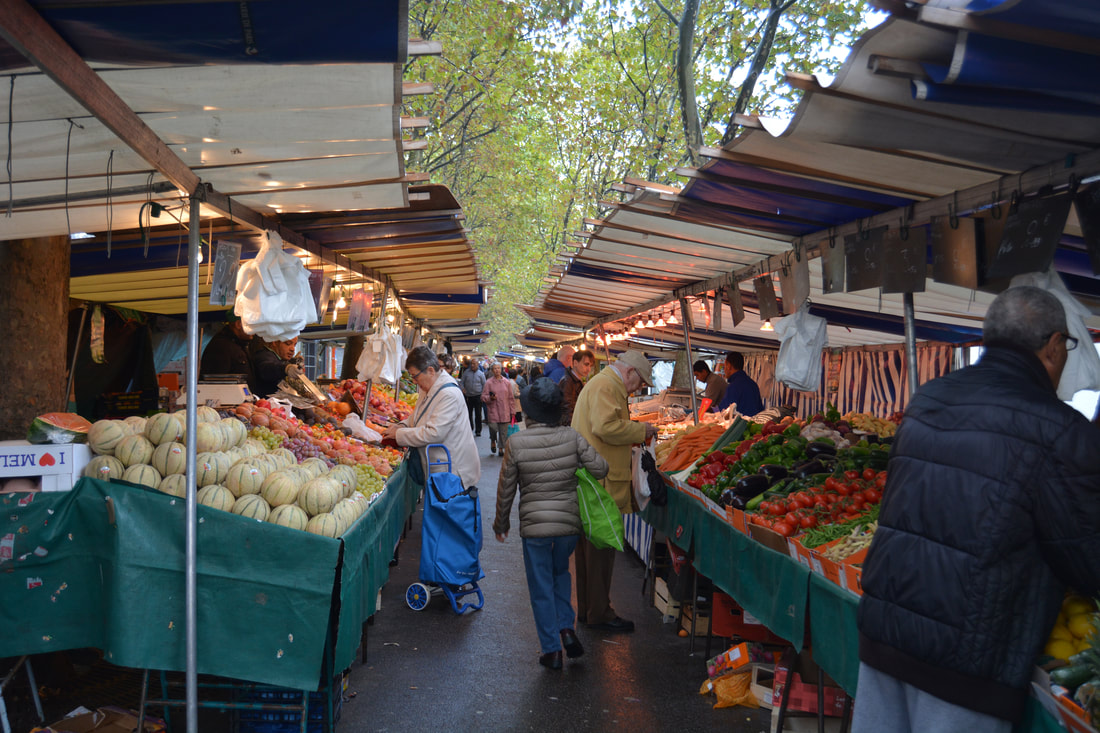Tips for Surviving the Era
Inner Work and Outer Engagement on a Daily Basis
Plus Trust in the Availability of Fresh Possibilities
"Progressive friends, what are your best tips for surviving the era?"
Such was the Facebook post from a former student and friend of mine. From various friends she received many replies to which I'll add a few: raspberries, music-making, marijuana, etchasketch, baking, cussing loudly, breathing, keeping up the good fight, commiserating with like-minded friends, bourbon, taking walks in nature, avoiding cable news, meditating, praying, avoiding political discussions fanatics on the other side, skateboarding, joining online book clubs, poetry, boxing, etc.
I'm asking the same question, as are so many I know. I find myself drained by the news of the day. It seems to me that many of the practices identified in the paragraph above can be helpful. Not all, but many. Please judge for yourself.
I'd like to offer an open and relational or process response. I'm influenced by the Practicing Democracy Project of the Fetzer Institute and Spirituality and Practice. The Practicing Democracy Project offers many practices, so I won't add to the list. Instead I'll make some general comments that are in keeping with three themes in process theology: the importance of subjective attitudes and motivations, the importance of acting in the world, and trust in the availability of fresh possibilities
Outer Engagement and Inner Work
First, outer engagement. Perhaps when you hear a phrase like "outer engagement," active advocacy in the political arena may come to mind: advocating for certain public policies, participating in party politics, fighting the good fight. These are good things. But outer engagement can also take place in smaller less contentious ways. The less contentious can occur when we practice democracy with children, very old people, other animals, and the earth.
One practice of outer engagement comes from the Talmud. It is to “be the first to extend a hand of greeting” in a social encounter. The hand can be extended to those who are lonely and marginalized, and to those whose politics you find repugnant. An outreached hand, a shoulder to cry on, a simple smile, a moment of democracy.
Sometimes it will be very easy practice a moment of democracy, because you feel affection for the person. Sometimes it will be very difficult and you will have to muster all the energy you can, or fake it. Even the faking it is a good thing. It is an act of courage and of love. If the context is adversarial, you are out-loving the enemy.
Inner work is different from outer engagement, in that it purposely works with and in the more private, emotional side of life, even if done with other people. One practice of inner work is to find that place within yourself which carries a flag of no country. This is a place that not about nations and patriotism and ethnicity and identity. It is part of who you are but it is not absorbed in politics. It is that part of you which Zen Buddhism calls the ‘true person of no status.’
It is important to find this place every day in some way. It is your own celibate core and it has beauty and goodness in its own right. Making contact with it can give you a sense of freedom and freshness for the day. It can be found through prayer, meditation, gardening, music-making, walk-taking, quilt-making, wood-working, knitting; poetry-writing; and cooking. And it can be done communally, in a meditation group or a weekly walk with friends. During this time, it is important to practice what the Buddhists call ‘right speech.’ Do not speak ill of others and do not talk about politics at all. Consider it a Sabbath from engagement, a time of renewal.
Daily Life Covenant
So here's my suggestion. Develop a daily life covenant. Write down one form of outer engagement and one form of inner engagement you would like to undertake on a daily basis for, say, the next month. You can then renew and revise at the month’s end.
No doubt you will want to interpret your two-practice covenant in your own way. If you are of a certain religious mind-set, you can consider your two practices forms of prayer, ways of making contact with the One in whose heart our lives unfold. Trust that the activities and the intentions behind them become part of this deeper Unity and that they may well flood back into the world in some way. The moments of democracy will be, as it were, divinely recycled. If you are more of a naturalist or secularist, or at least non-theistic, don’t worry. Just think of the activities as contributing to the well-being of the world and your own well-being in some way. You may likewise think that something of their energy is recycled, not by Heaven but by the Cosmos. There is not a single theology or philosophy or outlook on life that can help you undertake the practices of inner work and outer engagement. I find process theology very helpful, but there are other ways, too.
Within the context of a two-practice-daily-covenant, there is a third practice that can help you survive the era. I’ll call it Prophetic Imagining or, in other terms, As Much Hope as You can Muster (Given that There is a Source of Novel Possibity at Work in the Universe).
Prophetic Imagining
Prophetic Imagining thinks and acts from a sense of future possibilities. It entails (1) committing your energies to helping build local communities that are creative, compassionate, participatory, diverse, inclusive, humane to animals, good for the earth, and spiritually satisfying, with no one left behind, and (2) understanding these communities as the building blocks of a new kind of civilization that needs to emerge. In the world of process theology and philosophy, we call it ecological civilization, because its people live with respect and care for the whole community of life, people much included.
Prophetic imagining is not mere wishing. It is based on a sense that the future is not pre-determined, no matter what the trajectories from the past, and that our own actions, in combination with the moral arc of the universe, can make a different. This moral arc is not all-powerful, but it is indeed energizing. It is what process theologians call God, understood as a continuous source of novel possibilities for the world and also as a receptacle of the world's sufferings and joys. Prophetic imagining, then, is faith or trust in the availability of these possibilities.
It is inherently nourishing if combined with inner work and outer engagement. With help from such imagining you can lament the partisan rancor, the rise of authoritarian governments, ethnic nationalism, and cultures of deceit and cruelty, knowing that that they are not necessarily the end of the story. Remember prophet Moses, who dreamt of a new land but never actually saw it. You, too, can dream of a new land, and give yourself to that dream.
Here, too, you can interpret the Imagining in your own way. If you are of a religious mind-set, think of it as God’s dream. If this doesn’t make sense to you, think of it as the better hope of a planet that is very, very beautiful, filled with all kinds of creatures that count, ourselves much included.
So here, for me, is the bottom line. Go ahead and fight the good fight. Engage in partisan politics. Get angry. Cry and shout. Be frustrated. But take care of yourself, too, and don’t just think of the world as a battleground. Think of it as place of beauty and friendship and hope as well. Allow your heart and imagination to be guided by the better hope: that of ecological civilization, however named. And make sure your imaginative activity is grounded in two daily practices of your choice, one inner and one outer.
I can imagine small informal clubs emerging around the country in the coming era called Spiritual Survival Clubs. But I recommend a different and more positive title: Spiritual Flourishing Clubs. It seems to me that the practices may well help you and others flourish in a very difficult era. You will out-love the difficulties and have a little fun along the way, helping do your part to prepare for a time when, truly, things are much better. And even if that future does not come to pass, at least you did your part, in your way, to the best of your abilities. The moral arc of the universe cannot ask for more.


